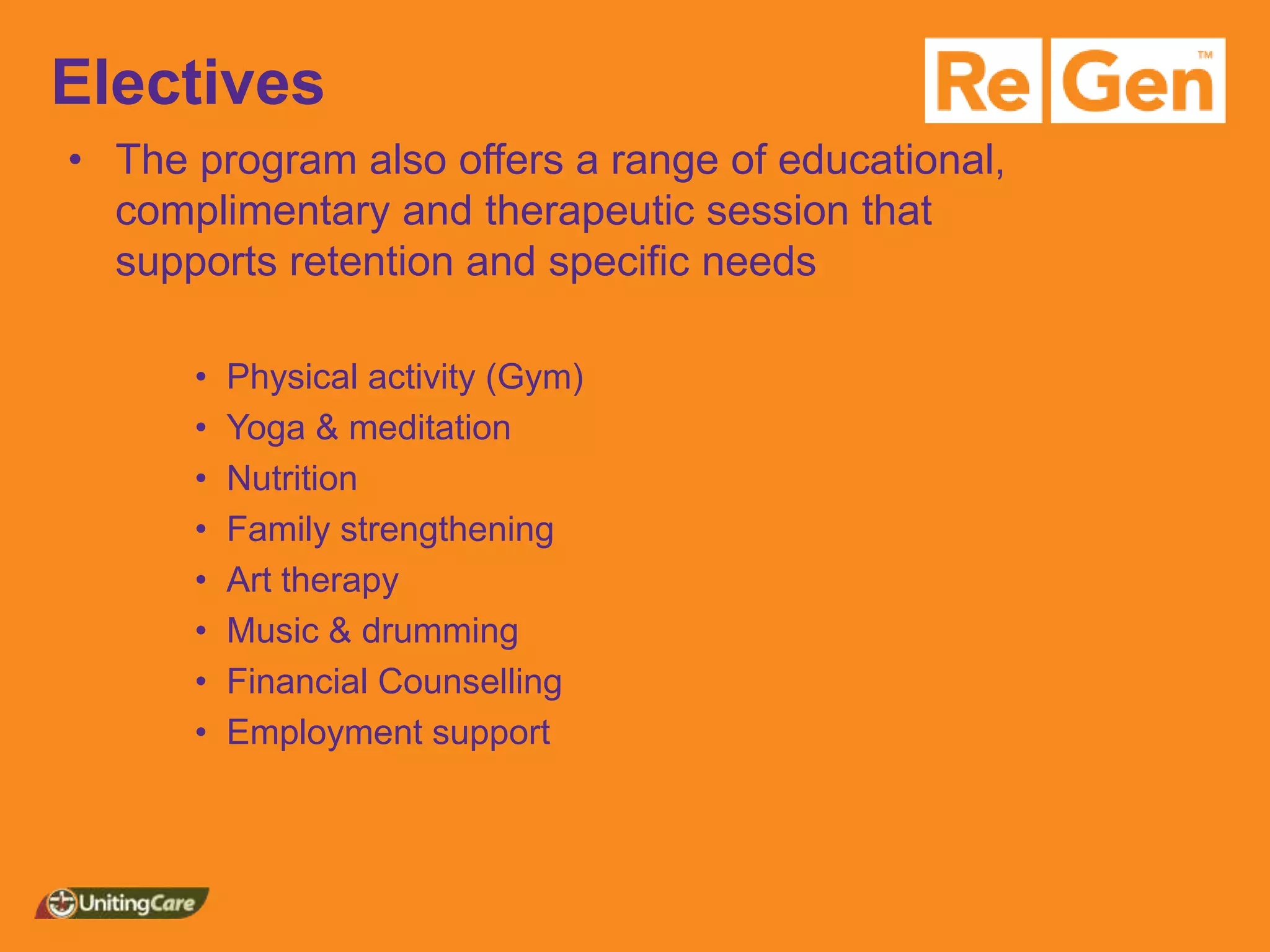UnitingCare Regen, a non-profit agency, has implemented tailored programs for methamphetamine users in Victoria, responding to high client needs and treatment challenges. The introduction of an extended withdrawal program and the Torque day rehabilitation model has improved client retention, reduced substance use, and enhanced overall quality of life. Key findings emphasize the importance of person-centered, evidence-based approaches and post-treatment support to maintain engagement and successful outcomes.














